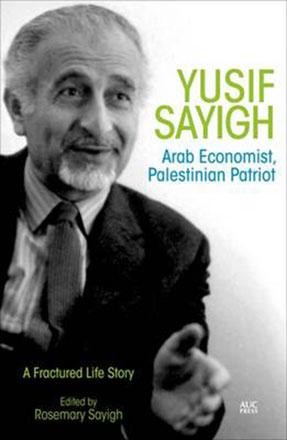You are here
Light your own lantern
By Sally Bland - Sep 06,2015 - Last updated at Sep 06,2015

The Lanterns of the King of Galilee
Ibrahim Nasrallah
Translated by Nancy Roberts
American University in Cairo Press, 2014
Pp. 550
Combining fact and fiction, Ibrahim Nasrallah recounts a nearly forgotten chapter in Palestine’s history. While his earlier historical novel, “Time of White Horses” (AUC Press, 2012), is set in the 20th century, “The Lanterns of the King of Galilee” reverts back to the 1700s. It tells the story of Daher Al Umar Al Zaydani who created the first (and, arguably, only) Palestinian state, which at its height encompassed Galilee, the coastal plain and southern Palestine, as well as Irbid, Ajloun, the Houran and Sidon.
Though never formally seceded from the Ottoman Empire, this territory was de facto under local self-government for a number of years, mainly due to Daher’s daring, wise and proactive leadership. As he said to the shepherd whom he inspired to be his first lieutenant, “If you want to see the world, Bishr, you’re going to have to light your own lantern.” (p. 76)
Indeed, lanterns flicker throughout the book, evolving from a symbol of fate into a sign of resistance and enlightened leadership.
Filled with sweeping landscapes, dramatic battles, bravery, cruelty and treachery, this book has all the ingredients of an epic, but one thinks Nasrallah chose to focus on Daher because his was a different kind of heroism. Anticipating an attack by Sulayman Pasha, he tells the people of Tiberius, “The worst idea anyone ever had was to be a war hero… we aren’t fighting in order to be heroes. Rather, we’re fighting in order to be human.” (p. 302)
Some called him King of the Galilee, but it was not a title he appropriated.
Growing up on the shores of the Sea of Galilee, son of a local tax collector known for his fairness, Daher didn’t plan to be a hero. But he was deeply shaken when Sidon’s vizier slaughtered the entire population of the nearby town of Bi’na, when they couldn’t pay their taxes. At that time, such cruelties were rampant as local Ottoman officials sought to extort more than was due the empire in order to amass their own wealth and power.
Haunted that he couldn’t save his friends in Bi’na, and thinking that life didn’t have to be like that, Daher set about instituting a just system whereby he ensured that Tiberius paid the taxes due the Ottomans — but nothing more. In return, people were left alone to cultivate their land and raise their families in peace. After success in Tiberius, he extended his system to other towns through negotiations and alliances when possible, or by fighting if necessary. It is noteworthy that his friendships and alliances cut across religious sects and social groups to include Sunnis, Shiites, Jews, Christians, bedouin and urbanites, rich and poor. For a time, everybody was happy, and Daher gained the respect of Ottoman officials who appreciated the reliable stream of funding.
“Lanterns” is the story of a battle between two opposing concepts of heroism, leadership and exercising power — whether to serve the people or to be self-serving. In the end, the empire couldn’t tolerate Daher’s independence, and some of his erstwhile allies betrayed him in their own personal quest for power and wealth.
Like “Time of White Horses”, this novel has element of myth, including a white mare who plays a crucial role in Daher’s early life. Women play a very prominent role, and their dignity and freedom are seen as imperative for a just society. The plot also illustrates beyond the shadow of a doubt that blood relations are not necessarily more viable than ties developed in pursuit of common goals. Daher faces his biggest challenges from his sons!
The character who brings together myth, female power and the flexibility of kinship roles is Najma, Daher’s surrogate mother, sister, adviser, companion and soul mate — her exact blood relationship to him is never clarified. Though her name means star, she always goes barefooted as she draws her strength and well-being from the Earth, making her a symbol of the centrality of the land in Palestinian society.
Besides history, there is plenty of romance, adventure, folklore and information on material life in Palestine and Bilad Al Shem at that time, all rendered in Nasrallah’s elegant prose and tantalising storytelling, and Nancy Roberts’ excellent translation. The only dissatisfying aspect is that one never really understands what led most of Daher’s sons to betray him.
“The Lanterns of the King of Galilee” has great current relevance in that it illustrates a type of just, non-sectarian leadership that is so painfully lacking in Palestine and much of the region today. The book will soon be available at the University Bookshop.
Related Articles
Yusif Sayigh: Arab Economist, Palestinian Patriot — A Fractured Life StoryEdited by Rosemary SayighThe American University in Cairo Press, 2
Hizbollah chief Sayyed Hassan Nasrallah has threatened to retaliate against Israel for repeated strikes on Syria, in a television interview to be broadcast Thursday night.
City of Christian Love: The History and Importance of NazarethRaouf AbujaberNew York: Peter Lang, 2017Pp.
















